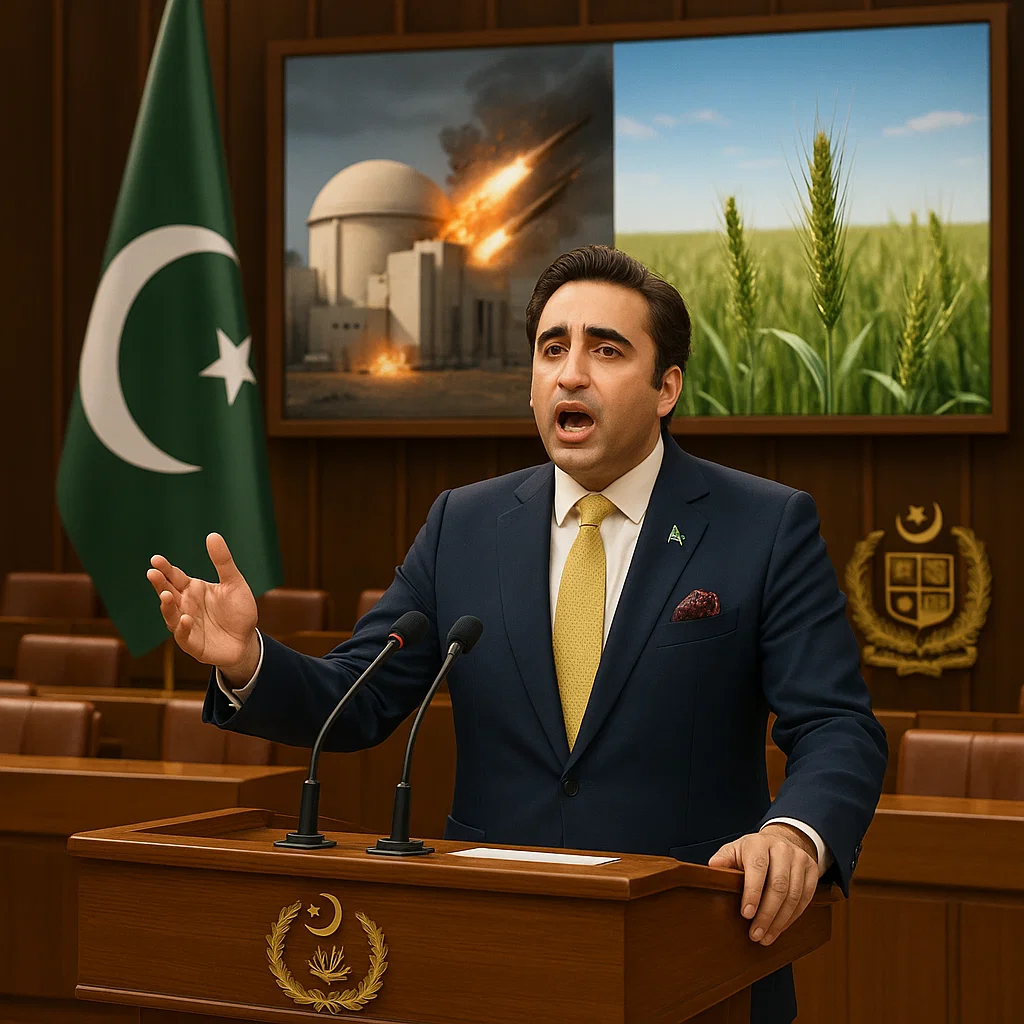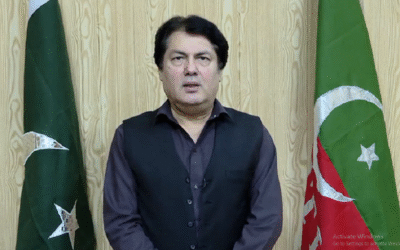ISLAMABAD: In his address to the National Assembly, PPP Chairman Bilawal Bhutto Zardari presented a bold and multifaceted stance on Pakistan’s fiscal priorities, defense strategy, regional stability, and agricultural reforms. Supporting the federal budget for 2025-26, he applauded meaningful collaboration with his party while criticizing major policy gaps—particularly in agriculture and provincial allocations.
A Budget Beyond Numbers: A National Vision
Bilawal began by framing the federal budget as more than just a set of figures—it is, in his words, “a statement of national resolve and vision.” He acknowledged that while the budget may not be perfect, it incorporated key recommendations from the Pakistan Peoples Party (PPP), thanks to timely consultations led by the Prime Minister, Foreign Minister, and Finance Minister.
He announced PPP’s support for the federal budget, highlighting this year’s more inclusive approach. Among the appreciated moves were a 20% increase in the defence budget and a matching 20% increase in the Benazir Income Support Programme (BISP), reflecting a parallel focus on national security and welfare.
Major Relief for Salaried Class and Working Families
One of the most lauded components of the budget was the increase in the non-taxable income bracket from Rs. 600,000 to Rs. 1 million, providing much-needed relief to salaried workers. Bilawal called it a “historic relief for the middle class.” Additionally, the 10% salary hike and 7% pension increase were acknowledged as small yet meaningful gestures to support working families amid economic challenges.
He stressed that PPP has always defended the rights of the working class and pensioners, reminding the house that under his party’s past tenure (2008–2013), salary and pension increases were made historic.
Rising Concerns: Agriculture Left Behind
While supporting many aspects of the budget, Bilawal sharply criticized the neglect of the agriculture sector, calling it Pakistan’s economic backbone that is being systematically weakened. He noted that federal policies—under pressure from the IMF—forced provinces to stop procurement and support pricing, leading to massive losses.
He presented damning statistics: a total loss of Rs. 800 billion in wheat crop yield across Pakistan, with Sindh suffering Rs. 150 billion and Punjab Rs. 622 billion. Bilawal appealed to the government to declare an Agricultural Emergency and reinvest in support pricing, procurement, and smart irrigation to reverse this crisis.
India’s Water Threat and National Security
Bilawal issued a strong warning regarding India’s repeated threats to revoke the Indus Waters Treaty, saying any such move would be considered an act of war. He criticized local lobbies advocating unilateral dam construction in response, warning that such a reaction would signal weakness rather than strength.
“We cannot act in a way that gives India the impression we accept their aggression,” he said, urging the government to respond diplomatically but firmly through international legal mechanisms and regional pressure.
Iran-Israel Conflict: A Clear Stance for Sovereignty
In a powerful moment, Bilawal condemned the recent attacks on Iran’s nuclear facilities by the United States and Israel. Drawing parallels with the Iraq War, he said the world is again being misled by false claims of “weapons of mass destruction.”
He warned that such actions undermine regional stability and that Pakistan cannot remain silent. “If we don’t speak up for Iran today, no one will speak up for us tomorrow,” Bilawal asserted. He declared solidarity with Iran and urged the government to pursue an independent foreign policy centered on peace and justice.
Digital Tax Rollback, Solar Relief, and Provincial Equity
Bilawal highlighted PPP’s success in negotiating the removal of the unconstitutional digital tax on services, which would have violated provincial rights. He also appreciated the reduction of the solar panel tax from 18% to 10%, especially as many areas still suffer 16–20 hours of loadshedding.
However, he expressed dissatisfaction with the Public Sector Development Program (PSDP) allocations, particularly the denial of South Punjab’s rightful 30% share. He also stressed the need for increased federal support for terrorism-affected provinces like Balochistan and KP, emphasizing that counterterrorism requires not only force but a “hearts and minds” strategy.
A Call for Constructive Politics and Responsible Opposition
Bilawal concluded by contrasting positive politics versus politics of protest. He urged opposition parties, especially those in power at the provincial level like PTI in KP, to shift focus from slogans to solutions. “You can criticize the government—but you can also engage and deliver results for the people you represent,” he said.
He challenged all parties to take ownership of key issues like agriculture, terrorism, and water, instead of limiting their politics to single issues like prisoner releases.
Conclusion: Pakistan Must Prepare, Reform, and Unite
Bilawal Bhutto Zardari’s budget speech was not just a critique or endorsement—it was a roadmap. From agricultural rescue to water defense, from working-class relief to foreign policy clarity, the speech laid out Pakistan’s internal and external challenges with a call for unity, reform, and moral courage.


